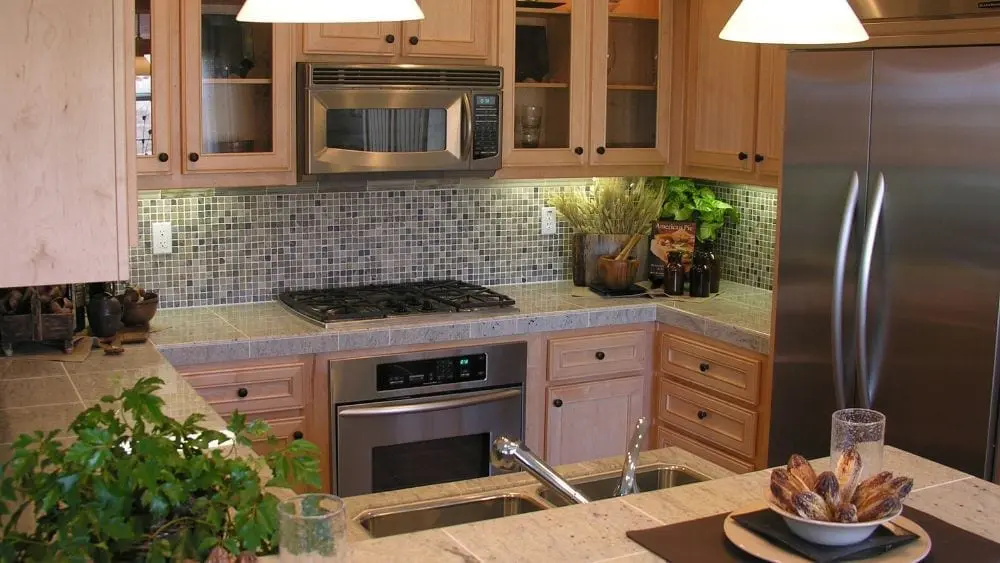
In today’s busy world, your time is invaluable. Major home appliances are essential time savers; they can rescue you from wasting time on mindless chores and grueling tasks such as handwashing dishes and scrubbing stains from dirty clothes. The minutes you spend filling ice cube trays, hanging clothes on the line to dry, and scouring silverware after dinner all add up to countless hours you can never recover. Alternatively, you could invest your time more wisely and enjoy your new space and create your dream home – if you let your appliances do the work for you!
While buying all-new can be an expensive investment for a new home, many homeowners discover that the overall long-term appliance cost is more economical than purchasing resale. When investing in appliances for your new home, it’s important to look beyond the sticker price and consider long-term expenditures, including maintenance, repairs, and how soon a replacement will become necessary.
Many homeowners consider the possibility of purchasing a resale house with previously installed components. While this option is typically more affordable upfront, buyers will need to take into account the average lifespan of certain appliances and compare that with the timeframe of your working model. For instance, if your resale home is 10 years old and your appliances were new at the time the home was constructed, what is the average lifespan of each unit? When should you expect to replace them, and at what cost? Below is some information to help you crunch numbers.
HVAC
Most everyone has become accustomed to living with a central air conditioning system. They currently have an average working life of 7 to 15 years. However, the average furnace will last about 15 to 25 years. The cost to replace a central air system on a 2,000 square foot home, including labor and professional installation, can be steep; you can expect to spend approximately $4,100. On the other hand, the expense of a new furnace or other heating system could exceed $3,500.
If the resale home that you have your eye on was built 12 years ago and still has the original A/C system, it could be in its sunset years. That means you may want to consider the possibility that in the next year or two, you may be faced with exorbitant repair charges – or pay for a full replacement.
Dishwasher
Dishwashers may rank as one of the most time-saving inventions ever created, and they become more technologically advanced every year. They tend to have a 7 to 12-year life expectancy. Depending upon factors such as brand, quality, previous maintenance and care, they normally last about 9 years.
The price of a new dishwasher varies but can range from $380 – $2,300. While it seems to be a pricey investment, many homeowners find that the benefits of a new appliance offset the expense. Newer models tend to generate less noise, reduce water usage, and offer many washing and drying options. This can produce great results: lower utility bills and more freedom, giving you extra time to spend enjoying your new home with family and friends.
Washing Machine and Clothes Dryer
From your standard matching washer/dryer set, to multi-tasking washers, to high-efficiency front loaders and even stackable sets, washing machines and dryers come in a variety of fancy functions. Washers typically cost $275 – $2,500. This is largely dependent upon the size and capacity of the machine, as well as any additional bells and whistles. Clothes dryers are similar in price and range from $350 to $2,000.
A washing machine could last up to 15 years with proper care and regular maintenance. However, some experts recommend replacing any appliance that is more than 8 years old. Dryers have about the same working time frame, clocking in at about 13 years before they are graveyard bound. Some homeowners find that it is best to start with a new matching set to lessen the risk of one machine wearing out before the other.
Refrigerator & Freezer
From adjustable shelves to French doors and all the frills in between, it’s no surprise that the price range for combined refrigerators and freezers is also quite expansive. The price tag on a new fridge is anywhere from $350 to $4,000, with a life expectancy of approximately 9 to 13 years.
When weighing the cost of repairs and regular maintenance, it’s important to remember that a refrigerator repair could set the homeowner back $200 and $400 for each job. Two separate repairs could surpass the cost of a brand new fridge.
Stove & Range
Whether it be electric or gas, induction or coil-top, there is a multitude of options for your stove and range. An electric range has an average lifespan of 13 years, while a gas range is slightly longer-lasting, at about 15 years.
The cost for a new range can span anywhere from $400 to $8,000, depending on the type, size, tier of appliance. A professional grade range may cost between $6,000 and $8,000. Homeowners may opt for a mid-level range that will likely cost about $1,000 to $2,500, but there are some quality bargain finds for $600 or less on the market. If you decide to switch from gas to electric or vice versa, you will also need to budget for labor costs of a licensed professional to set up your new system.
Water Heater
Water heaters are often forgotten in the major appliance category, usually because they are tucked away in a closet. They rarely get much attention – until the hot water in the shower is unexpectedly chilly. Water heaters come with the tank or tankless variety, with a significant difference in expense and durability of each.
According to the U.S. Department of Energy, water heaters with a tank tend to last approximately 12 years, while tankless ones may last 20 years. While they may be longer lasting, tankless water heaters are substantially more expensive; they come with a sticker price of approximately $3,000 compared to water heaters with a tank that run about $900.
Plan for the Long Term
To operate effectively, home appliances require regular maintenance and care. Their value, similar to automobiles, will depreciate over time, and at an even faster rate if they are overworked or not well-maintained. When considering buying your home as a resale with pre-installed components, be sure to consider the age of original or existing appliances – and any warranties – that may still be valid.
When paying for the installed appliances rather than buying new, homeowners are at risk of paying more in the long run for repairs on prior wear and tear and, eventually, the entire replacement cost. While the buyer will initially pay more for all-new, they will not need to worry for another decade about anything breaking down. And if they do, they may still be under warranty. Less time spent worrying about your appliances means more time to spend enjoying your new home!

Melanie Theriault is a writer, counselor, and lifelong learner. She holds a B.A. in Sociology from Southwestern University, where she discovered her passion for fostering human connection through storytelling.
 5 Easy Curb Appeal Tips for Your New Home
5 Easy Curb Appeal Tips for Your New Home